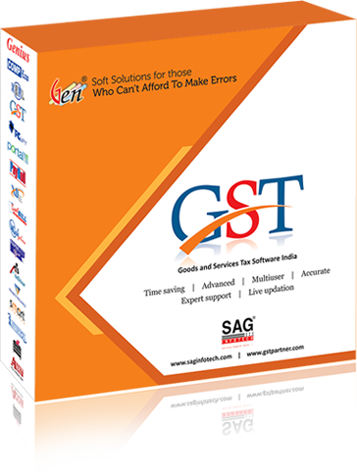Currently, GST taxation structure is one of the most debated topics in the nation, and all are busy discussing the impact of GST on the various affairs of our day to day life.
GST Impact on the Relationship of the Employee and Employer
Though, overall the GST is a positive move by the Government for boosting the economy of the country, but, at the same time is being also seen to impose a negative impact on the relationship of the employee and employer of any company or organizations. Many of the laws and sections described in the GST are set to pose a threat to the mutual cooperation relations of the company and employee.
The GST states that the GST would be payable if there is a supply of free goods or services to an employee exceeding the sum of RS. 50,000 also if an employee avails the assets of the company for personal use, it would trigger GST. Further, the Input Tax Credit will not be available on the supply of various facilities to employees, including life and health insurance.
Many of the tax experts have tried to explain the scenario in this regard. They clearly defined that GST is a taxable event which applies for all the supplies of goods and services. They further elaborate that any supply of goods or services to a related party ( e.g. employees) without consideration, when made in the course of furtherance of business, is taxable under GST.
As stated above, the experts also underline that an exception has been made in the GST Bill under the schedule 1, which provides that `gifts’ not exceeding Rs 50,000 in value in a financial year by an employer to an employee shall not be treated as the supply of goods and services.
Recommended: GST impact on IT industry
“Amenities provided to an employee, which is not part of his or her cost to company (CTC) package, could now possibly attract a GST levy,” says Sachin Menon, indirect tax leader at KPMG India. While the cost to company structures differ, typically, free lunch, car drops, a scholarship to employee’s children are not part of the CTC package, which leaves India Inc to grapple with GST complexities.
The biggest problem is that under GST the term ‘Gift’ has not been clearly defined and our daily dictionary explains that the – ‘gift is something voluntary supplied without any consideration. It does not stem from any contractual obligation.’
Seen in this light, given that the term `gift’ has been used for carving out the monetary exemption, only items incidental to employment, like an award to an employee, or Diwali gifts should come under the GST levy, if these exceed the monetary limit per employee,” says Uday Pimprikar, indirect tax partner, EY India.
Further, Schedule II of the GST relates to activities to be treated as the supply of goods and services. In the clause 4(b) of this schedule, it has been stated that where goods held for the purpose of the business are put to any private use, whether or not for a consideration, such usage would result in a supply of services and a GST levy.
“Going by the strict interpretation, if a company provides a car to an employee for his use (both official and private) the usage could be considered as a supply of service to the employee, which is a taxable event for GST.
Recommended: GST impact on Indian consumer
In such a case, the company should be given the benefit of input tax credit and proper valuation norms must exist to ensure that GST is levied fairly and not on the fair market value, but rather the cost or depreciated value of such assets, says Pimprikar.
The final GST bill has been framed, which also includes a list of services for which input tax credit will not be available anymore. Some of these are facilities extended to employees such as free or subsidized food and beverages at the office/workplace, sponsorship of gym, club or fitness centers membership, cab facilities, group life and health insurance.
The only relief is in this regard is that input tax credit will not be denied in cases of services to be notified by the government, these will be those where the employer is obligated under any law to provide the same to its employees.






